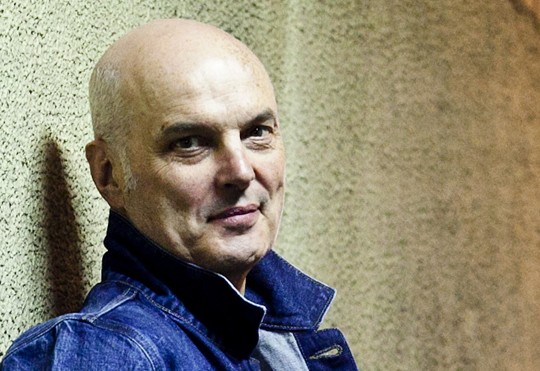 Those who like their crime fiction set in a hot climate may well have come across the books of Robert Wilson. His Falcón series was set in Seville, and Sky Atlantic have been turning it into a series of films. Meanwhile his Bruce Medway series was located in West Africa, and he’s also set two books in Portugal including his CWA Gold Dagger-winning A Small Death in Lisbon. However, his latest book brings, Capital Punishment, brings us to London. We invited him in for a chat…
Those who like their crime fiction set in a hot climate may well have come across the books of Robert Wilson. His Falcón series was set in Seville, and Sky Atlantic have been turning it into a series of films. Meanwhile his Bruce Medway series was located in West Africa, and he’s also set two books in Portugal including his CWA Gold Dagger-winning A Small Death in Lisbon. However, his latest book brings, Capital Punishment, brings us to London. We invited him in for a chat…
First of all, tell us what you think crime fiction lovers will love about Capital Punishment?
It’s a high-speed search for an answer to the enigma: why has Alyshia D’Cruz been kidnapped? People are usually kidnapped for money and as Alyshia’s father, Frank D’Cruz, is an Indian billionaire, this would seem the obvious motive, but the captors make it quite clear that financial gain is not their ultimate aim. Instead they set about deconstructing Alyshia’s life in a series of brutal interviews whose results they reveal to her parents. The reader’s eye is inevitably drawn to Alyshia’s charismatic and ambitious father, who has a past of which only the good bits are known.
Alyshia’s security detail, provided by a London gang, consists of two dangerously underestimated likely lads, called Skin and Dan. Once they start developing their own ideas everything starts to unravel and then the really sinister figure in Frank D’Cruz’s past raises his ugly head. Once he’s involved, anything could happen.
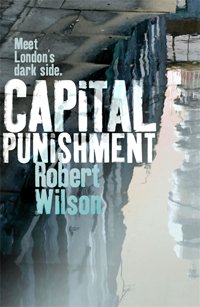 How is Charles Boxer different from, or similar to your previous protagonists?
How is Charles Boxer different from, or similar to your previous protagonists?
After the four Falcón books I wanted to get away from the detective hero and the pure police procedural. I also became interested in the idea of a hero that tests the reader’s moral certitude. So I invented Charles Boxer, kidnap consultant, instigator of a charitable foundation that finds missing persons and yet also someone who is lethally flawed. Can he still be a hero?
Those who’ve read the Falcón books will know of my interest in absent fathers. In the case of Charles Boxer his father disappeared when Boxer was only seven years old. The police wanted to question him about the murder of his wife’s business partner, he absconded before they could get to him and he’s never been seen or heard of since. Boxer has never been able to get over this paternal betrayal.
Your settings vary a great deal – Seville, Portugal, West Africa. London would seem less exotic. Why was it chosen for Capital Punishment?
I find London the most exotic setting of them all. Nobody who has lived in London thinks for one moment that it’s not the most interesting city on the planet. However much they bitch about the place it really is to them the only show on earth. Londoners use London in different ways. Some people feel as if they’ve crossed the channel when all they’ve done is gone south of the river, while others only know their rat run from home to the City and back home again. Some swan around in the stratosphere of Kensington and Knightsbridge while others are in the grit and grime of a life in Catford and Lewisham. But they’re all Londoners. The challenge was to find what joins them all. And that was my work in Capital Punishment: realising that London was not so much a place but more a state of mind.
What was it like to see the Falcon novels turned into a TV series on Sky Atlantic?
I’ve always found it interesting to watch film or TV adaptations of books and to see what works and what doesn’t. To have that happen to my own books was more of a challenge. I had no objectivity. I knew the process was going to be painful from the moment they said that they were going to film The Blind Man of Seville in 90 minutes. I felt that was just way too short for the content of the book. Also there is now a fashion for much longer series, with 20 one-hour episodes of The Killing, for instance, which means people are looking for something more involving. So, given the length of my books, the films were a long way from my vision. I didn’t enjoy the TV character of Falcón being made into a drug user. I preferred the adaptation of The Blind Man to The Silent and the Damned, which felt very distant from my book and changed Falcón even more, especially at the end.
Having said that, there were things I admired about the movies. I liked the way Seville was portrayed and how it felt very different. It did not feel like a British cop show transported to Seville. I liked Marton Csokas as Falcón, Charlie Creed-Miles was nothing like my version of Ramírez but he was extremely effective and I especially admired Hayley Atwell’s performance as Consuelo, even though I’d been concerned at how young she was for the part.
Your first book came out in 1995. What’s changed in the crime fiction genre since you started out?
It’s become much more commercial. For instance, I don’t think my Bruce Medway noir novels set in West Africa, would find a mainstream publisher like HarperCollins in this day and age. There are now also a lot more writers, supplying an enormous variety of work across all subsections of the genre. It’s going to be interesting to see how publishers and Amazon will present it and how readers will access the vast amount of material. Ask me that question in five years time. I can only guarantee a totally different answer.
What’s next?
The sequel to Capital Punishment is already written and is currently going through a short revision phase. It’s current title is You Will Never Find Me.
Watch for our review of Capital Punishment, soon.






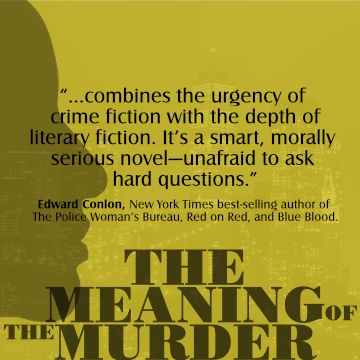
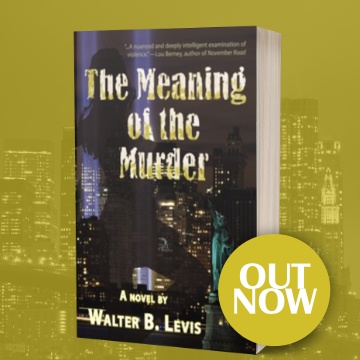
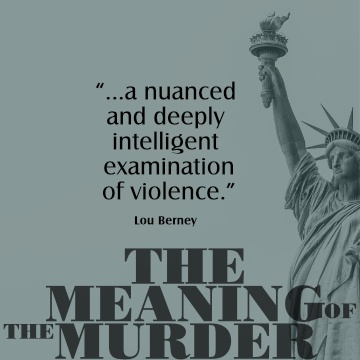
Interesting interview- particularly when Wilson talks about the TV adaptation of his books – The Blind Man is a sprawling book, much better suited to a series – or at least a two hour format like Montalbano – much more effective even though that series also lost the plot, literally at times, because of cutting. Thanks again
Glad you enjoyed it. The Killing has proven that people will watch a detailed, drawn out crime story from start to finish, so I agree with you.
I loved ‘A Small Death in Lisbon’, but for some reason I never read anything else by him. Thanks for the reminder that I really need to catch up. I had forgotten how much I enjoyed it.